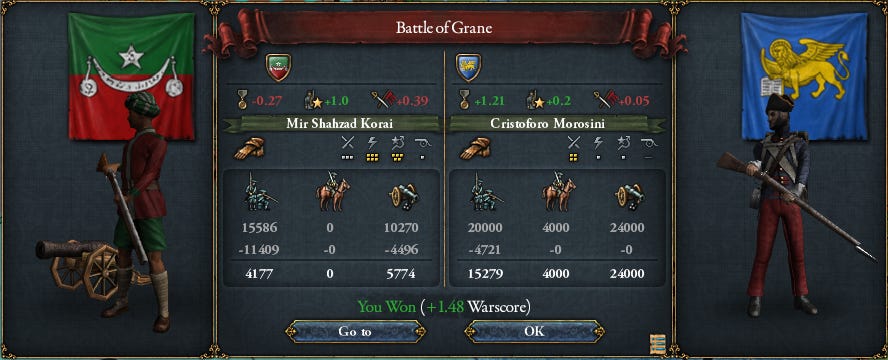Azure Three Bezants: Secret Faiths
How does one keep a secret for generations? The Aiello have changed their rituals in the service of secrecy; they no longer circumsize their boys, no longer refuse pork and shellfish, and no Aiello would dream, now, of saying the Shema in public even for a brother. But they still meet, on the night different from other nights, to eat unleavened bread and ask four questions; their boys still study - in addition to the broad curriculum expected of a Venetian gentilhuomo - texts in a language they never speak outside the Aiello mansion. Over half a millennium, perhaps three thousand Aiello have passed through the Hidden Gate behind Salomone's study, and held the clandestine rites in the Inmost Chamber. They clean it with their own hands; the mosaics and tapestries that show scenes of Exodus, of exotic Eastern cities, of two boys fishing, are the work of the Aiello women, not of hired artists. Three thousand men and women, over five hundred years; not all of great intelligence, some embittered drunkards. Yet not one has broken faith. Surely it is an accomplishment, a long silence worthy of a great family; it was not, after all, by luck alone that Salomone parleyed his stroke of fortune into a position among the rulers of Venice. Fortuna e virtu are the two great requisites for power; if the Aiello have had their share of luck, still, luck alone will not maintain a family among the mighty for centuries. And if another demonstration of that virtu were required, the discipline and self-control required to guard against drunken slips of the tongue, against confessions to a beloved mistress, and against deliberate betrayal for gain, for hundreds of years - the Long Silence, if it were broken, would in itself justify the Aiello claim to be the pre-eminent family of the Serene Republic. Twelve generations have kept the faith; and if the Long Silence is breached, it will not be the fault of the young men and women who have recently asked the four questions in this year of Grace 1745. But if it takes one to know one, it follows that one can know another. Sometimes, now, there are hints that the Inmost Chamber is not the only well-kept secret in Venice. It is not apparent to the casual eye; but to one born in a mansion with a Hidden Gate leading to rooms whose dread secret must be kept, the signs are there: In mismatches between the areas of a house that have a known use, and its outside dimensions; in weaving calluses and mortar traces on the fingers of women not known as artists; in the tiny flickering of eyes as a slightly drunk guest suddenly sobers, and checks whether you have been paying attention and perhaps heard too much in his careless words. Every sword cuts two ways; if the Aiello can see the signs in others, and if those signs indeed indicate that there are other Inmost Chambers in which secret rites are held... then will not the celebrants of those rites be able to see the signs in the Aiello? It takes one to know one; and one can know another. Sometimes it seems that there is a conspiracy of silence in Venice; that all the patrician families have a secret, and all know that the others have the same secret, and all know that the others know... but they are not quite sure whether everyone knows that they know that they know, and so they keep their silences, and communicate in little flickering hints and subtle signs, and say without words "I am one of you, you are one of us". But if they say so, there is this question to be asked: What is the 'us' in which they, by accident, include the Aiello? If all the great families of Venice have secret chambers in which they hold hidden rites, still it does not seem likely that they all eat unleavened bread and ask four questions. But it may well be that their nights are different from other nights. What secret faiths are hidden, in the Inmost Chambers of Venice?

The Byzantine war ended in a compromise peace imposed by England: Ragusa is back in Venetian hands, and that was roughly the only result except for three countries exhausting their manpower reserves. I do not think this outcome pleased anyone except the English player; the people attacking Byzantium wanted much more loot, and Byzantium wanted to actually fight to the last Englishman (to be fair, he had already fought to the last Greek and Uzbek) and get some loot himself. However, England had the ships, the money, and the men, and wanted to fight in India; so he called off the shots. We then descended like locusts on Persia, which has lost its player and is out of the protected period; unfortunately I did not come well out of this ghoulish feasting, which instead strengthened Byzantium very considerably. Due to a series of mistakes, and a divinely-inspired Persian general beating up my stacks instead of other peoples' stacks, I got only some coastal provinces in the Persian Gulf.

Seriously, check this guy out.

Eurasia, 1745.


